Medals & Coins, Arms & Armour - 17 May 2023
Women's Social and Political Union: the...
Women's Social and Political Union: the Suffragette Medal and associated items to hunger striker Jessie Landale Cumberland, the medal an engraved silver disc, 'HUNGER STRIKE', rev. 'JESSIE CUMBERLAND', upper and lower suspension bars of banner form, the upper engraved 'FOR VALOUR' and the lower 'MAY 21ST 1914', the ribbon of three equal vertical stripes in the W.S.P.U. colours of green, white and purple, Toye & Co, Birmingham 1913; together with Miss Cumberland's portcullis badge, indicating imprisonment in Holloway Jail, square lattice form with spiked lower projections with applied broad arrow motif enamelled in the W.S.P.U. colours; the illuminated printed address associated with the award of this medal and bearing the stamped signature of Emmeline Pankhurst and the M/S signature of Emmeline Pethick-Lawrence; the ribbon and upper brooch fitting for a pendant badge, 'DEPUTATION 1910' to the enamelled brooch, the ribbon embroidered 'DEPUTATION'; a W.S.P.U. enamelled badge, 'VOTES FOR WOMEN', green over purple divided by a white chevron; a National Union of Womens Suffrage Societies enamelled pin badge; a Church League for Women's Suffrage badge; two sections of 2.25 inch silk ribbon in the W.S.P.U. colours (possibly from a sash); also offered: a Girl Guides green enamelled 'B.P.' adult guider's badge, and a British Legion badge. [qty]
(22.24mm diameter of round medal)
By descent.
Jessie Landale Cumberland was born in Nainital, India, in 1861, to Richard Felix Wilson Cumberland and Jessie Maria Landale. By the age of 10, she had moved to England and was living with a widowed aunt in Bognor. She took work as a governess, moving to Hove where she lived as a boarder at a house in Brunswick Terrace.
The 'DEPUTATION 1910' ribbon and bar may indicate participation in the demonstration outside the Houses of Parliament on the 18th of November 1910, which came to be known as 'Black Friday' for the brutal physical abuse visited upon the Suffragettes by the police and onlookers. Her first arrest appears to have occurred on the 27th of November 1911, when she and a number of other women were detained at Bow Street police station. A stone-throwing campaign had been initiated by the Women's Social and Political Union on the 21st of November, though it is also possible that she was involved in the protests that followed the withdrawal of the Conciliation Bill, news of which had broken on the 24th.
Her arrest on the 21st May 1914, which is commemorated on the bar of the medal, resulted from a celebrated episode in the history of the fight for women's suffrage: the demonstration outside Buckingham Palace, as part of which Emmeline Pankhurst attempted to present a petition to King George V. Miss Cumberland was one of 66 women arrested - together with two men - and the episode produced the iconic photograph of Pankhurst being forcibly detained by Chief Inspector Francis Harry Rolfe.
Miss Cumberland lived to see the passage of the Representation of the People Act in 1918, dying in March 1935 in Wimbledon,

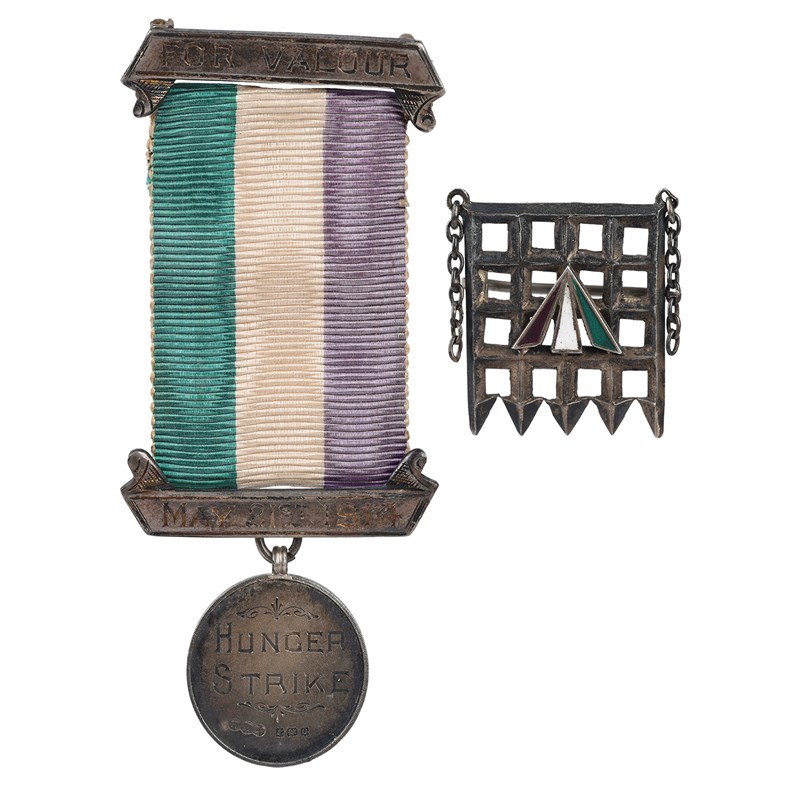
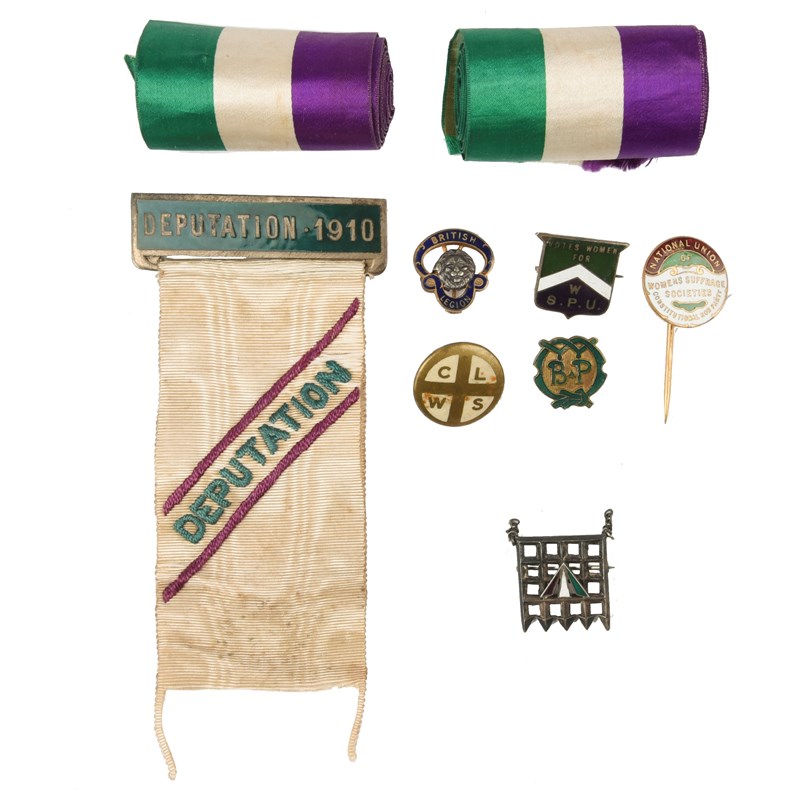
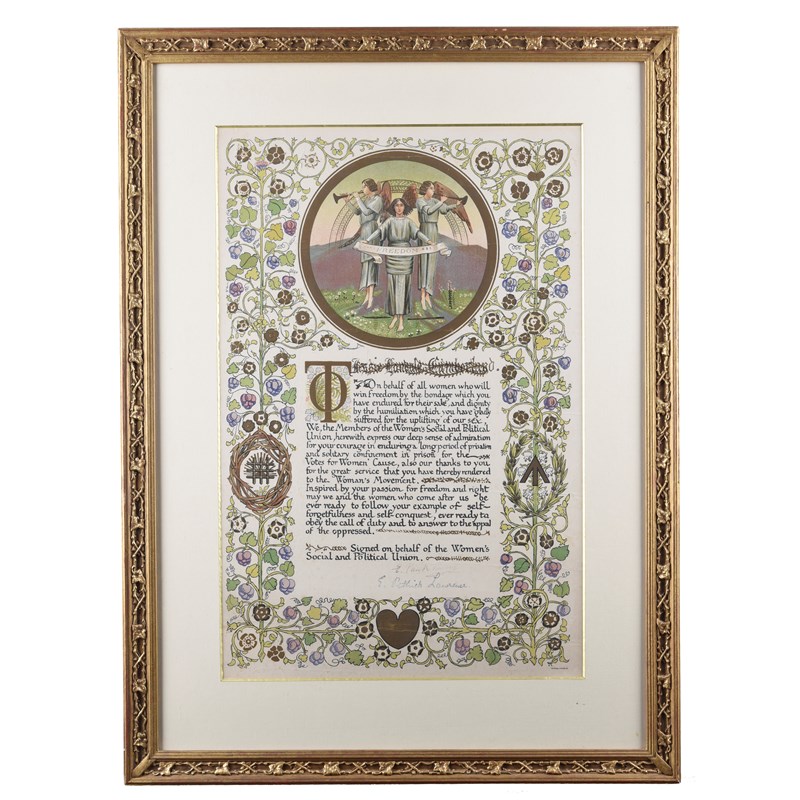
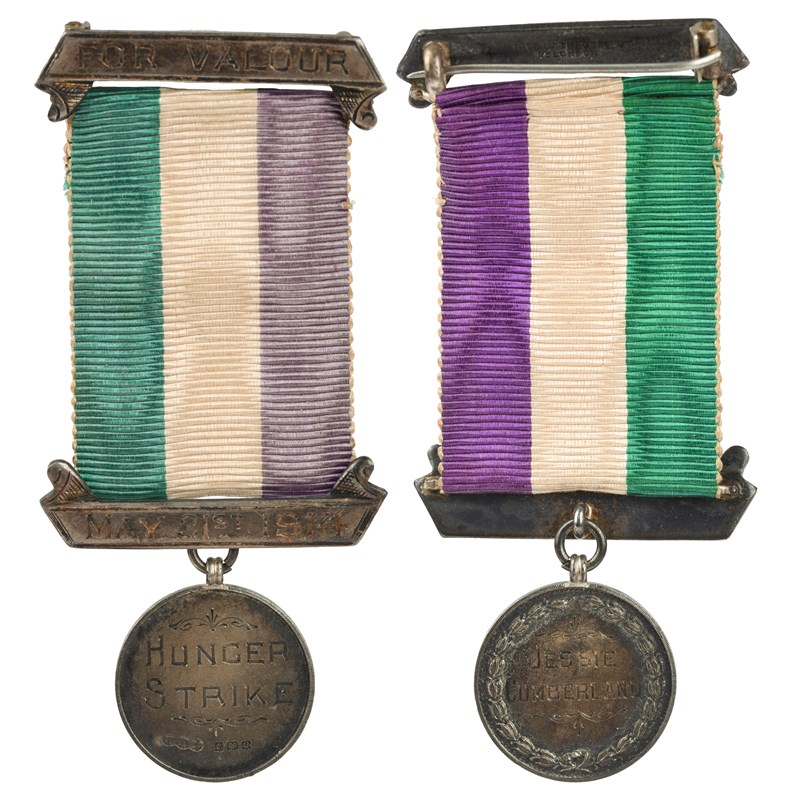
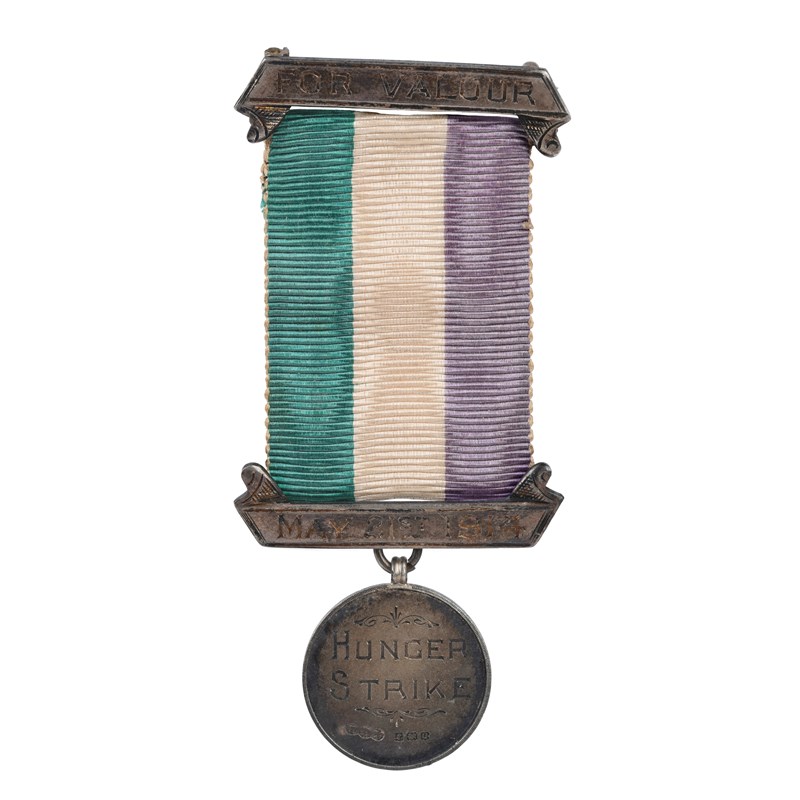
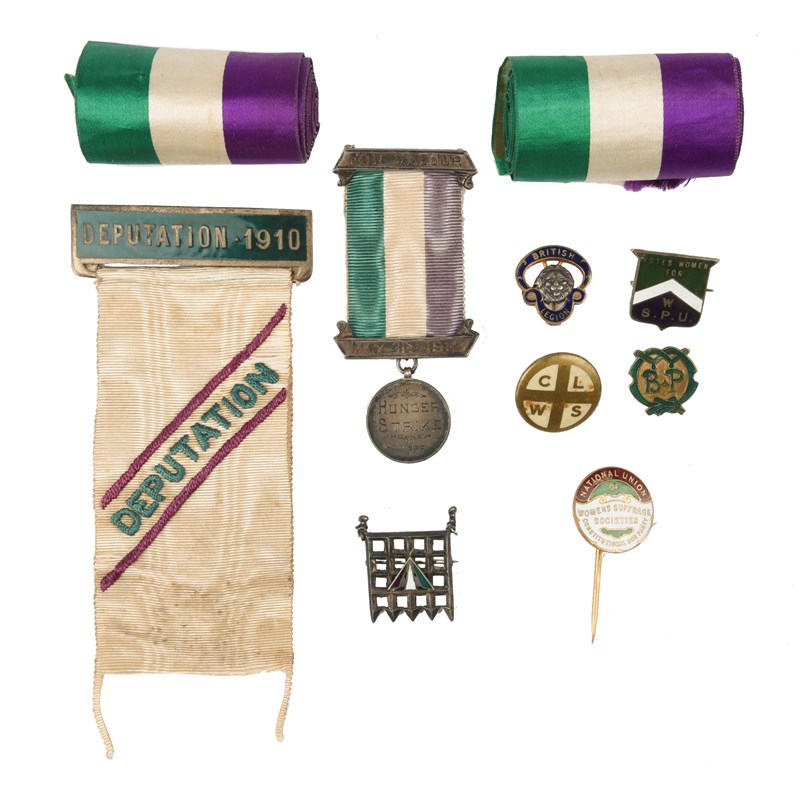


 Live online bidding is available via our own
Live online bidding is available via our own